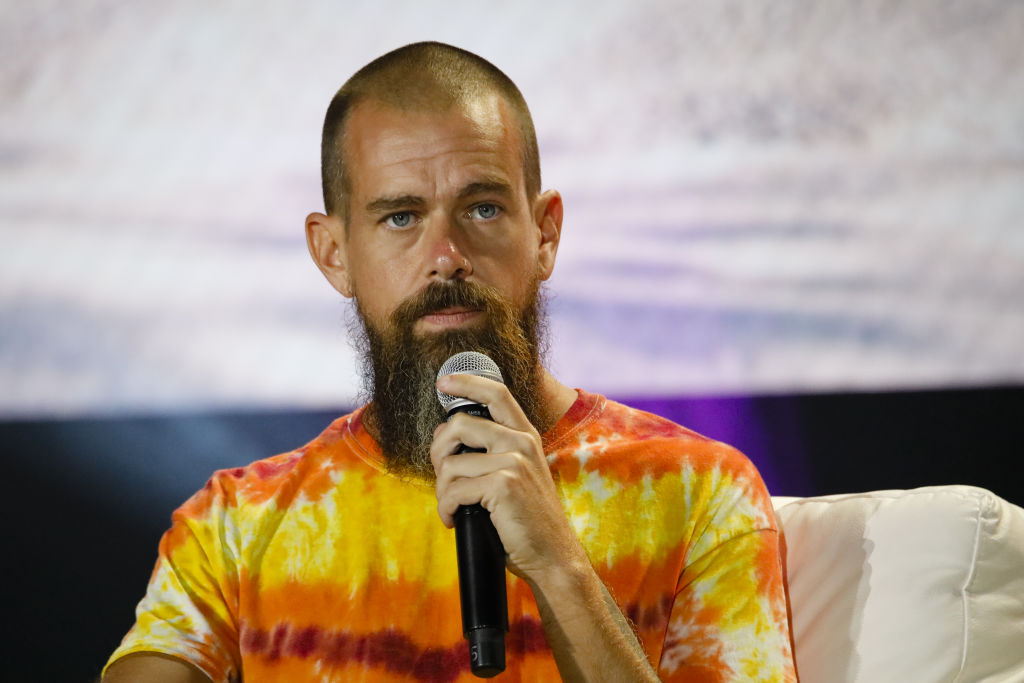
As Elon Musk continues to take Twitter down a tumultuous path, users have been scrambling for alternatives. One of those rival platforms happens to be created by Twitter co-founder and former CEO Jack Dorsey.
Bluesky, a Twitter-like microblogging platform, was initially launched as a project within Twitter to develop a decentralized service. It spun off as a public benefit company in the fall of 2021—with Dorsey on the board and software engineer Jay Graber, who had been brought in to Twitter to lead the initiative, as CEO—before Musk acquired Twitter in 2022.
Since being globally released earlier this year, the Bluesky app has been downloaded more than 360,000 times from Apple’s App Store, and more than 100,000 times on Google Play, market analytics aggregator data.ai told Fortune—though it remains invite-only to create an account. Some popular Twitter personalities are already reportedly appearing on the app, including New York Democratic Congresswoman Alexandria Ocasio-Cortez and the absurdist humorist and outspoken Musk critic who goes by the pseudonym Dril.
Here’s what you need to know about Bluesky.
What makes Bluesky different from other platforms?
Bluesky boasts of providing interoperability and portability across different social media networks. It’s also made its code open-source, allowing the public to see under the hood of how its algorithms work..
“People have been saying for years that it would be great if users could own their data and their relationships; if we could have transparent algorithms and algorithmic choice; if there could be more accountability and user control over how social platforms are moderated,” CEO Jay Graber wrote in a March 2023 blog post. “We’ve now designed and built a system that we think achieves the goals stated above.”
Bluesky is a federated social network—which allows it to communicate with other service providers similar to how email works (users from Gmail can still send messages to and receive messages from other users on Outlook or Protonmail, for example).
Bluesky is developing both a platform—which appears as a pared-down version of Twitter—as well as the Authenticated Transfer Protocol (or AT protocol), the technology on which the platform runs. Graber described the protocol as “a foundation for next generation social apps that can bring back the openness and creativity of the early web.”
More from TIME
Bluesky says that its AT protocol will allow account portability—importing and exporting accounts—from one platform to the next, without losing data and connections with other people in the transfer. The AT protocol also grants users algorithmic choice, which means they may control what they wish to see in their own feeds instead of a centralized algorithm shaping content people see. (Musk has also expressed interest in implementing this kind of choose-your-own-algorithm method on Twitter.)
Who is on Bluesky and can I create an account?
The Bluesky app can be downloaded, but creating an account is invite-only for now. Users may choose to sign up for its waitlist to try out the beta version. Over a million people are on the waitlist, and some 1,000 to 2,500 are joining every day, according to tech news site Decrypt. But Bluesky users who have been on the platform for some time may send out invite codes, so asking a connected friend could be your quickest way in.
Bluesky has not announced a specific date for widespread public release, as CEO Graber says the company is still finishing “critical” pieces of the app—particularly its content moderation system.
“We want to enable people to have a safe, enjoyable experience, so we’re regulating growth and building moderation tooling as a first-order feature and not as an afterthought,” says Graber.
What other Twitter alternatives are there?
For users looking to flee Twitter, Bluesky isn’t the only alternative.
There’s Post.news, which caters mostly to journalists and publishers. Created by former Waze CEO Noam Bardin, it’s estimated to have over 900,000 users as of the end of March.
There’s also Substack Notes, which went public on April 11. The new platform by the subscription email newsletter company also allows the posting of short-form content without depending on ads for monetization as the parent company relies heavily on its paid subscription network. Substack Notes is already used by prominent individuals like former basketball player Kareem Abdul Jabbar and author Margaret Atwood.
Meanwhile, Mastodon, which launched in 2016 and had more than 2.5 million active users at one point earlier this year, like Bluesky, also promises interoperability between social networks.
And Nostr, another Dorsey-backed company, has also developed its own open protocol for social networking.
More Must-Reads from TIME
- Cybersecurity Experts Are Sounding the Alarm on DOGE
- Meet the 2025 Women of the Year
- The Harsh Truth About Disability Inclusion
- Why Do More Young Adults Have Cancer?
- Colman Domingo Leads With Radical Love
- How to Get Better at Doing Things Alone
- Michelle Zauner Stares Down the Darkness
Contact us at letters@time.com